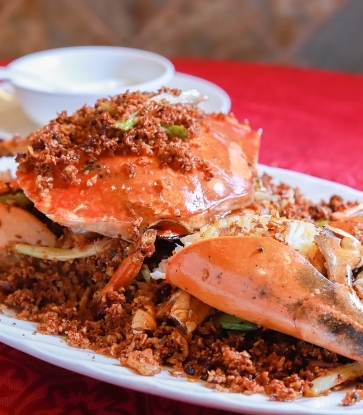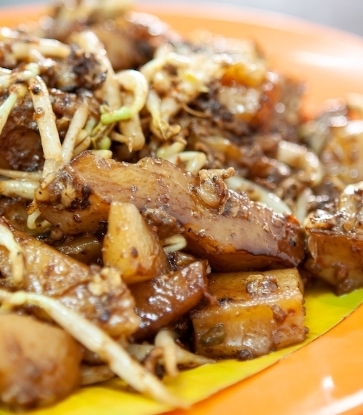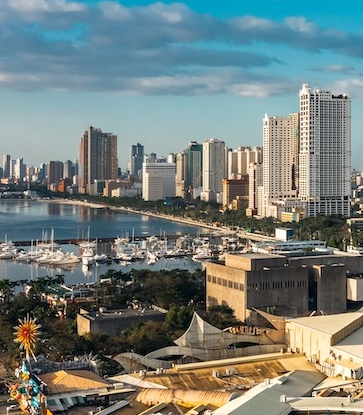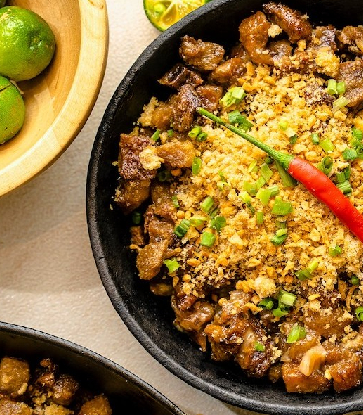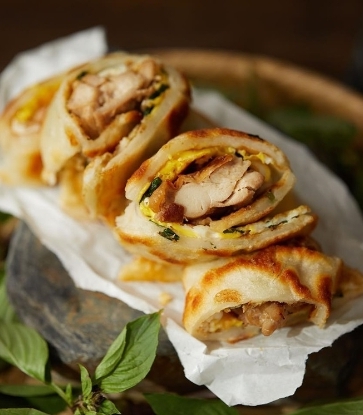After working as an inspector and exploring multiple continents and numerous cities featured, I’ve been closely observing Taiwan’s gastronomic scene since the guide’s launch here in 2018. Each year, my team and I are continually impressed by the boundless potential and delightful surprises this beautiful island has to offer.

Discovery 1: Diversity, with 50 Cuisine Types Included
I am constantly impressed by the diversity and inclusiveness of this beautiful island.
The seventh edition of The MICHELIN Guide Taiwan features over 340 restaurants and small shops, representing more than fifty types of cuisine from around the world—two more than last year. Our newly selection embodies the diversity, maturity of Taiwan market and its ability to embrace the difference of the tradition and new trend without any limitation.
With its rich and diverse cultural backdrop, Taiwan's culinary landscape is a vibrant tapestry of flavors. This year, we have MINIMAL, the world’s first establishment specializing in frozen delights to be awarded a MICHELIN Star. Its ever-changing seven-course menu features gelato and granita, artfully presented to convey a distinct theme each season.
The Bib Gourmand BUĒ MI . LAB pushes culinary boundaries with innovative noodle recipes from around the globe, delivering bold and complex flavours. Additionally, Taiwan's MICHELIN Guide has now included its first Mexican restaurant. At Pàng, the chef—shaped by American influences and his tenure at ZEA, Taiwan’s first and only one-MICHELIN-Starred Latin American restaurant—masterfully blends traditional Mexican tacos with local Taiwanese ingredients.
Inspectors have noted that local investors have been investing large amounts of money on launching fine-dining restaurants. The restaurant industry in Taiwan is flourishing, there have been plenty of exciting new openings. The scale of restaurants is not limited to small scale business models like before; and the fine dining is not only applied to western style cuisine but also clearly seen in Taiwanese or Asian-related contemporary cuisine.

Discovery 2: The Rise of the New Young Generations

Discovery 3: Welcome back, Chefs!
Our inspection team is thrilled to see those “familiar faces” back to the market, achieving new milestones. Chefs, welcome back!
Among this year's newly-starred restaurants, several familiar names have returned to the spotlight. Chef Lin Chiu-Wei, who previously led the kitchen at The Guest House (formerly a two-MICHELIN-Starred restaurant, now holding one star), has teamed up with a new crew to open YUENJI, securing its place in the MICHELIN Guide. Matt Chan, formerly of the three-MICHELIN-starred Le Palais, has collaborated with Chef Paul Jian Po Hu, who brings over 40 years of culinary experience, to launch GEN, a new Cantonese restaurant that has quickly been awarded recognition for its excellence. Chef Alain Huang, once a key figure at the two-Starred RAW, has embarked on his own venture, named "A," offering an exceptional dining experience in an elegant, private setting. Food lovers were initially disappointed when former two-Starred Shouen Ryugin chef Hieda Ryohei stepped away, but their spirits were lifted when he resurfaced just a year later in Datong District and opened Eika, creating a Japanese restaurant infused with a distinctly Taiwanese flair.
Just like Hieda san, there are more and more experienced foreign chefs who chose to settle in or return Taiwan. The rich-abundant local ingredients, inclusive culture and vibrant economy are the reason why attract them. The international exchange and cooperation among chefs are noticeable feature.
RELATED: MICHELIN-Recommended Restaurants in Taipei’s Dadaocheng District

Discovery 4: Sustainability as the Prominent Focus in Taiwan’s Culinary Landscape
The focus on being more sustainable and eco-friendlier is a daily approach and big thing in Taiwan. The momentum is greatly encouraging restaurateurs, chefs and staffs implementing the way of making their approach with positive change on environment.RELATED: What is a MICHELIN Green Star?
Our Green Star restaurants serve as role models, continuously encouraging other establishments to adopt eco-friendly practices. Many restaurants are also contributing by using more seasonal and local ingredients, embracing nose-to-tail cooking, fostering closer relationships with producers, and minimizing the use of paper and plastics, all in an effort to make a positive impact on the environment.
Left image©Yi Shau Huang/Thomas Chien)
RELATED: Think Green, Live Green: Thomas Chien's 5 Green Initiatives on Sustainability

Discovery 5: Diverse Small Eats That Blend Tradition and Innovation
We were impressed by the variety of Taiwan small eats, especially in Tainan and Kaohsiung. These individuals with traditional techniques and recipe passed from generation to generation, such as Tainan’s A Han Taiwanese Oden, which has been around for 50 years, and Kaohsiung's Bib Gourmand Liang Chia Pig Knuckle, a local favorite for near 30 years with its signature pork knuckle rice.
At the same time, the new generation tried their best to preserves their tradition and bring the new identity to refresh the image and generate better dining experiences to the diners.
A good example is the new Bib Gourmand Soft Power, known for its Southern Taiwanese-style egg fritters. The restaurant has innovated with over 10 different fillings and even offers the fritters wrapped in steamed dark brown sugar buns, resembling a Taiwanese burger. From its décor to its dishes, it embodies a perfect blend of tradition and innovation.
RELATED: 126 Restaurants Awarded Bib Gourmand in the MICHELIN Guide Taiwan 2024
Every year, I look forward to returning to Taiwan, knowing that new surprises and heartfelt moments are always waiting for me.




